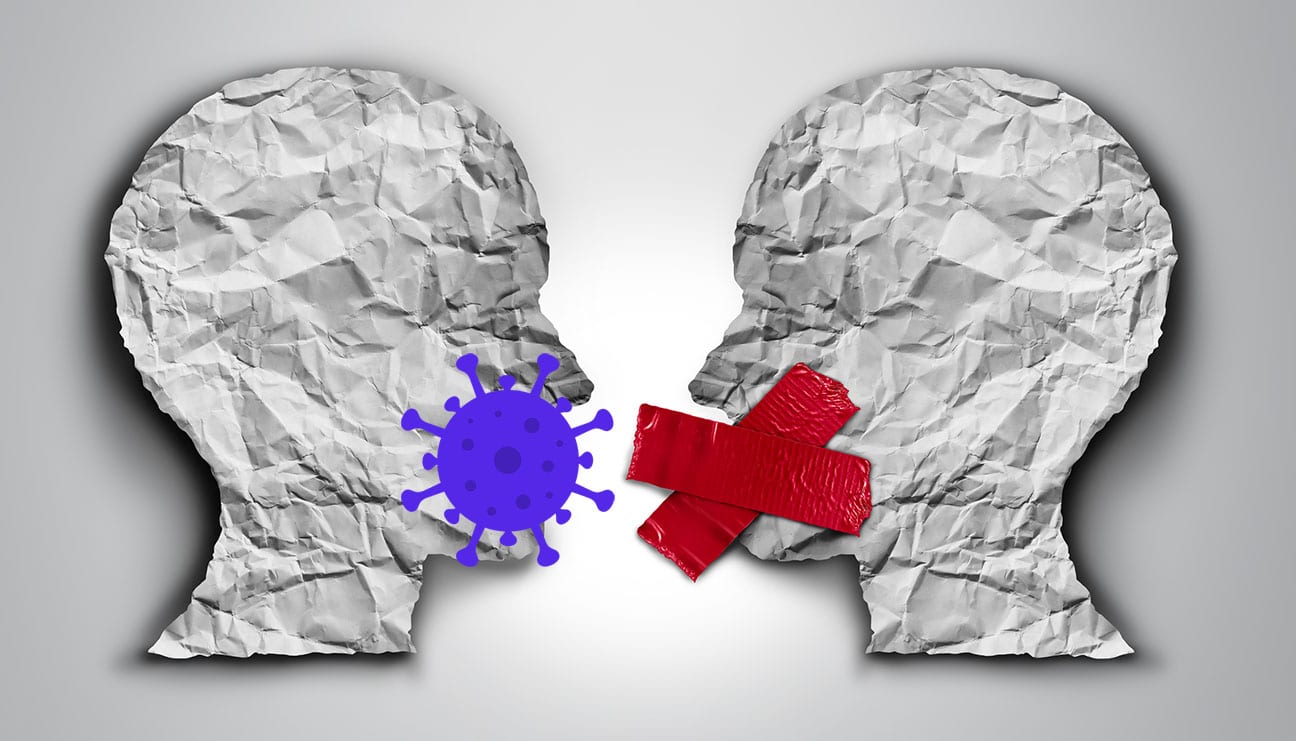 wildpixel/modified/Getty Images
wildpixel/modified/Getty Images One crisis is brutal and primal, the other delicate and emotional.
COVID is brutal. Trillions of tiny viruses with the power to kill us are trying to invade our bodies.
Wokeism is emotional. It revolves around our feelings and the right to not be offended.
It’s odd that these two major forces have hit us at the same time. They’re mirror opposites. The fear of dying from COVID makes us small and humble and deeply grateful just to be alive.
Wokeism nurtures the opposite of gratitude. We feel cocky, entitled and intolerant. Anyone who offends us must be attacked, if not cancelled. Any speaker who will offend us must be stopped. We have a right to not be exposed to anything that might hurt our feelings or make us feel “unsafe.”
The fear of dying from COVID makes us small and humble and deeply grateful just to be alive. Wokeism nurtures the opposite of gratitude.
Wokeism looks, on the surface, as if it’s about fragility, but in reality, it’s more about power—the art of grabbing power through grievance and victimhood. The aggrieved, in today’s world, own the high ground. If you have any doubt, ask a college dean who receives a demand letter from a victim group: Who has the most power these days?
If wokeism is about gaining social power, COVID is about losing physical power. The virus doesn’t care about our feelings. It will invade our lungs whether we’re far right or far left, in a good mood or bad mood, woke or not.
Wokeism is a symptom of modern decadence, when maximum convenience and comfort trigger a nostalgia for epic struggles and dramatic causes. Absent these historic movements of yesteryear, the woke must come up with endless grievances to gain power and boost their self-esteem. That’s why they can’t stand to recognize real progress—it undermines their grievance-obsessed narrative.
A key tenet of wokeism is to preach inclusion and diversity, but with a crucial catch: Wokeism scrupulously excludes ideological diversity, which would be too messy. We’re inclusive in all ways, in other words, except when it comes to your opinions.
COVID is truly all-inclusive. It comes after all of us. It’s straightforward. It wants to enter our bodies and contaminate our cells.
But if COVID contaminates our cells, wokeism contaminates our souls. We’re intolerant of those with different views. We blame everyone but ourselves for our problems. We spend our lives on a high horse of self-righteousness from where we can easily spit on anyone who’s not on our team.
If there is one thing COVID and wokeism do have in common, it is an utter absence of humor. As much as the coronavirus allows little room for levity, wokeism allows even less. If my feelings are hurt, I don’t care if you’re funny.
Television star Steve Harvey, in a recent interview, explained why he stopped doing stand-up comedy. “If I had tried to continue as a stand-up,” he said, “there’s no way I could maintain a TV career. Because political correctness has killed comedy. It’s killed it. Every joke you tell now, it hurts somebody’s feelings.”
COVID is indeed a dangerous virus, but as horrible as it looks, it will eventually go away.
If COVID contaminates our cells, wokeism contaminates our souls. It’s dangerous not because it looks bad, but because it looks moral.
Wokeism is dangerous not because it looks bad, but because it looks moral. It uses a vocabulary that suggests fairness and justice—such as “anti-racism” and “equity”—to lull us into complacency. Who can argue against anti-racism? It’s only when we dig beneath the surface that we see how wokeism ends up hurting the very people it claims to help.
Bill Maher, a classic liberal, says that the woke have “gone off the deep end.” Deep end or shallow end, wokeism has infiltrated our culture, is spreading rapidly and won’t be easy to shake.
When we finally shake COVID, it will leave us bruised and exhausted, but more appreciative of the preciousness of life.
If we can’t find an antidote to wokeism, it will leave us more entitled and divided, less grateful and tolerant, and, ultimately, culturally and humanly diminished.
Which virus is more brutal?























 More news and opinions than at a Shabbat dinner, right in your inbox.
More news and opinions than at a Shabbat dinner, right in your inbox.